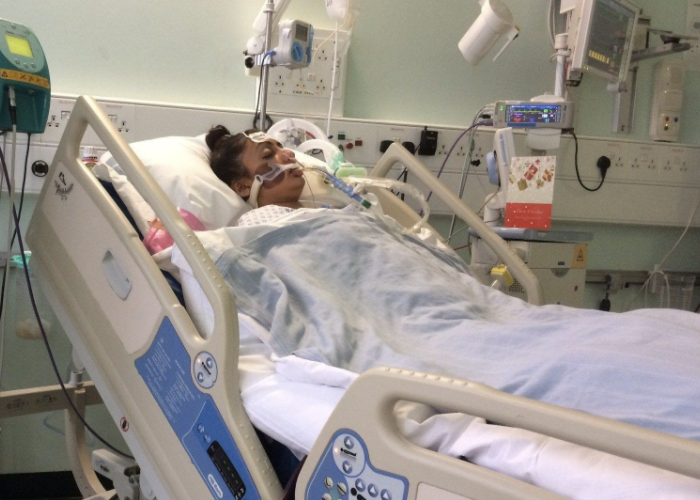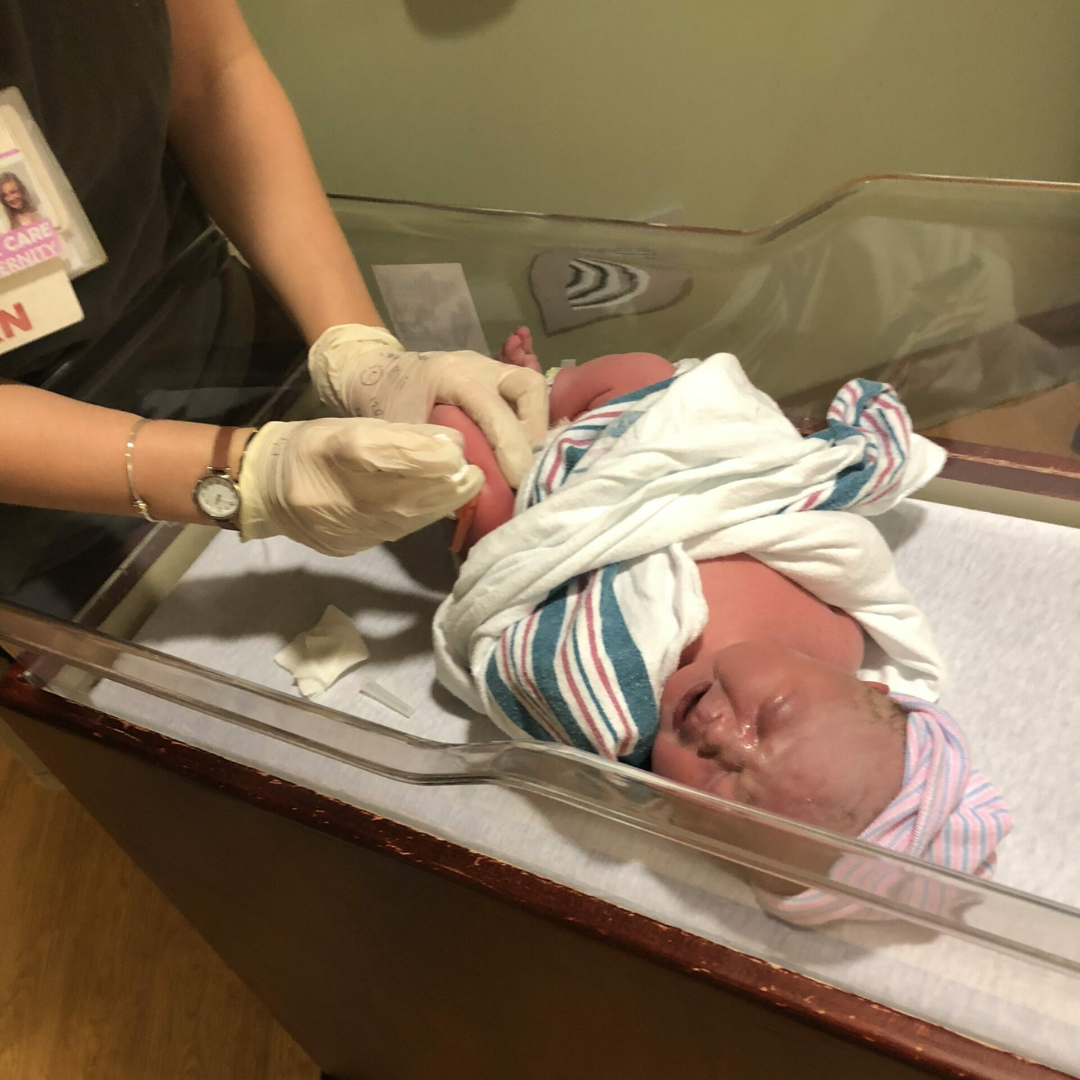by Shirali Patel
I returned home for the Christmas holidays after my first term at University studying Medicine. I was catching up with friends and family but started to feel a little under the weather during the weekend. On the Monday before Christmas, I woke up feeling much worse with an inflamed throat. I went to the doctor who said I was just a little unwell with the flu but to take Tylenol and keep an eye on it.

Being a budding medical student, I even asked if it could be meningitis (having seen posters about this around college), but at this point, no clear indications showed that this was the case. By Wednesday afternoon I had rapidly declined and could not get out of bed without a real struggle. However, I was quite confused and lost insight into how unwell I had become.
My Unconscious Diagnosis
My parents were out, but fortunately, on this day my brother was at home and helped get me to the local urgent care center; following this, they called an ambulance to take me straight to the emergency department. I was then taken into the ICU where at first the doctors thought my symptoms were due to leukemia. Some of the typical signs of meningitis that people are taught to look out for (photophobia, rash, headache) were missing. Later they diagnosed that this was all a result of meningococcal septicemia.
I was put into an induced coma fairly quickly, so I do not have much of a first-hand recollection of the initial hours of my hospital experience, but I remember doctors, nurses, and other professionals all being very kind and caring.

My family and friends were always kept informed, even if frank conversations about the likely prognosis/chances of survival were not easy to have, and they were supported well during and after the whole experience. The Meningitis Research Foundation was an especially helpful charity that offered advice and support to my parents.
This Could’ve Happened to Anyone
After a prolonged stay in hospital, it took a few months to get back to normality. There were some longer-lasting effects on certain organs due to the complications of sepsis, which involved going to outpatient clinics and having further monitoring. A lack of oxygen injured my kidneys, and it took months to restore functioning. And there was an issue with my spleen, leaving me vulnerable to certain infections (which additional vaccines could thankfully prevent).
We were also warned that meningococcal disease often leads to limb loss or requires amputation. However, I was very fortunate that there were no permanent effects and I could resume my studies at university the following year.
Overall, it was very hard to understand just how quickly an illness that initially presented with non-specific symptoms can become life-threatening. Part of this surprise was that I considered myself to be quite “healthy” and was a young adult who had never been seriously ill prior to this.
One key lesson from it all is to always be mindful of the temptation to think “It would never happen to me” and to make time for vaccines and other measures that can help you protect yourself. We are very fortunate to live in a society where many of these diseases have been made largely preventable through the introduction of immunizations, and it is important to consider their very serious complications and consequences when making an informed decision about vaccination.
Shirali Patel lives in the UK and is now an NHS doctor. Her story, like all others on this blog, was a voluntary submission. If you want to help make a difference, submit your own post by emailing us through our contact form. We depend on real people like you sharing experience to protect others from misinformation.



